
- 1. Understanding Scent Barriers for Pest Control
- 2. How Scent Barriers Work to Discourage Insects
- 3. Best Scent Barriers to Use Against Insects
- 4. Practical Application of Scent Barriers
- 5. Why Choose PestControlHub for Pest Control Solutions
1. Understanding Scent Barriers for Pest Control
Scent barriers are an effective, natural way to keep insects at bay without the need for harsh chemicals. These barriers utilize specific scents that insects find unpleasant, preventing them from entering areas where they are unwanted. Many insects, such as mosquitoes, ants, and flies, have highly sensitive olfactory senses, which allow them to detect and avoid certain smells. By creating a scent barrier, you can naturally deter these pests from invading your space. This method is not only eco-friendly but also safe for pets and children, making it a popular choice for homeowners seeking non-toxic pest control solutions.
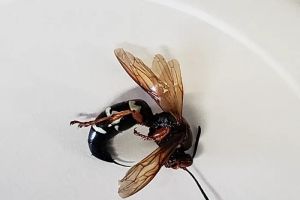
Westex Pest Management
White PlainsWestchester CountyNew York
20 Virginia Rd, White Plains, NY 10603, USA
2. How Scent Barriers Work to Discourage Insects
The concept of scent barriers is based on the idea that specific odors are repellent to insects. These odors confuse, overwhelm, or simply deter insects from entering certain areas. Some scents mask the pheromones insects use to navigate, while others create an environment that is unpleasant for them. Common scents used in scent barriers include:
- Citrus: Lemon, lime, and orange oils are natural insect repellents. The strong, fresh scent of citrus confuses insects and makes them avoid the area.
- Lavender: While soothing for humans, the scent of lavender is a powerful repellent for mosquitoes and other insects.
- Eucalyptus: Eucalyptus oil has been shown to be effective at repelling mosquitoes, flies, and other flying pests.
- Peppermint: The minty aroma of peppermint oil is a well-known insect repellent, particularly for ants and spiders.
- Cinnamon: Cinnamon can disrupt the insects' ability to smell and navigate, keeping them from infesting a space.
By strategically using these natural scents, you can create an invisible barrier that keeps pests away without relying on harmful chemicals.

Indiana Mosquito Busters
Winona LakeKosciusko CountyIndiana
910 E Pierceton Rd, Winona Lake, IN 46590, USA
3. Best Scent Barriers to Use Against Insects
Not all scents are equally effective for repelling insects. The key is to choose scents that target the pests you're trying to avoid. Here are some of the best scent barriers for common household insects:
- For Mosquitoes: Citronella, eucalyptus, and lavender oils are particularly effective. You can use these scents in diffusers or candles to create a mosquito-free zone in your home or outdoor spaces.
- For Ants: Peppermint, cinnamon, and cloves are excellent choices. Simply place sachets of these dried herbs around areas where ants are entering your home.
- For Flies: A combination of eucalyptus and peppermint oil can be very effective. These oils can be used in sprays or diffusers to create a fly-free environment.
- For Spiders: Spiders dislike strong scents like peppermint, eucalyptus, and citrus. Spraying a diluted solution of essential oils in areas where spiders are likely to enter can be a natural deterrent.
These scents can be used in various forms, such as essential oils, sprays, candles, or even in dried herb form, depending on your preference and the specific insect problem you're dealing with.
4. Practical Application of Scent Barriers
Using scent barriers to discourage insects is simple and effective. Here are some practical ways to implement scent-based pest control:
- Essential Oil Diffusers: Place essential oils in a diffuser to disperse the scent throughout the room. This method is great for indoor spaces and can cover a large area effectively.
- Homemade Sprays: Mix essential oils with water and a small amount of witch hazel or rubbing alcohol to create a spray. Spray this mixture on doorways, windowsills, and other entry points where insects might come in.
- Herb Sachets: For a more natural approach, place dried herbs like lavender, peppermint, and cinnamon in small cloth bags and hang them around your home, especially near windows and doors.
- Insect-Repellent Candles: Candles made from citronella, eucalyptus, and other insect-repelling oils can help create a pleasant, pest-free atmosphere during outdoor gatherings or while relaxing at home.
These simple applications allow you to effectively use scent barriers to keep pests at bay without relying on harmful chemicals.
5. Why Choose PestControlHub for Pest Control Solutions
At PestControlHub, we offer a wide range of natural pest control solutions, including products that incorporate scent barriers. Whether you're looking for essential oils, sprays, or insect-repellent candles, we have the best options for keeping your home insect-free in a natural, eco-friendly way. Visit our website today to find the right pest control solutions tailored to your needs and create a pest-free environment in your home.
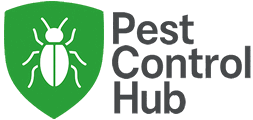
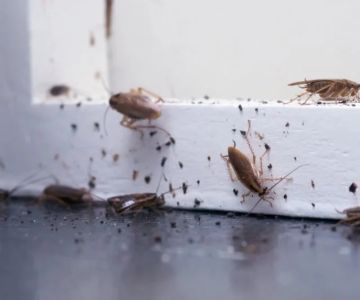


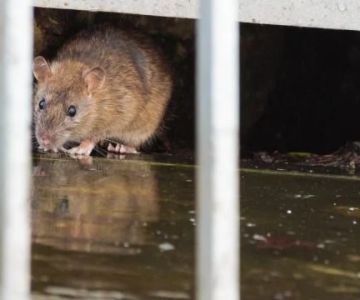
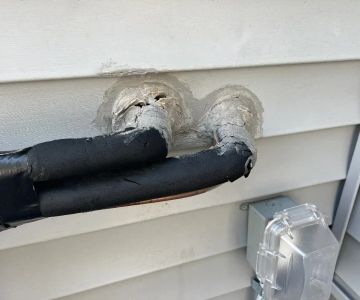
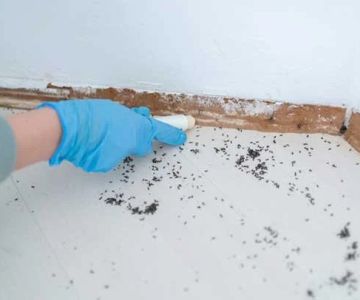
 Wildlife Resolutions4.0 (443 reviews)
Wildlife Resolutions4.0 (443 reviews) Pest Marshals of Toledo5.0 (2 reviews)
Pest Marshals of Toledo5.0 (2 reviews) LS Rodent Proofing & Pest Control Service5.0 (4 reviews)
LS Rodent Proofing & Pest Control Service5.0 (4 reviews) Best Termite & Pest Control4.0 (16 reviews)
Best Termite & Pest Control4.0 (16 reviews) Varment Guard Wildlife Services5.0 (28 reviews)
Varment Guard Wildlife Services5.0 (28 reviews)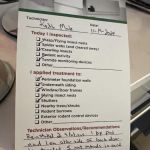 Pestban Inc4.0 (394 reviews)
Pestban Inc4.0 (394 reviews) How to Use Monitors to Detect Pest Entry: A Comprehensive Guide
How to Use Monitors to Detect Pest Entry: A Comprehensive Guide How to Predict Which Pests Will Invade Next – Smart Pest Forecasting for the U.S.
How to Predict Which Pests Will Invade Next – Smart Pest Forecasting for the U.S. How to Conduct a Pest Risk Assessment at Home – Expert Guide
How to Conduct a Pest Risk Assessment at Home – Expert Guide How to Block Pest Entry Around Deck Joists: Effective Solutions
How to Block Pest Entry Around Deck Joists: Effective Solutions How to Safely Use Fumigation Methods: A Comprehensive Guide for Homeowners
How to Safely Use Fumigation Methods: A Comprehensive Guide for Homeowners Why Pests Are More Active After Rain: Understanding the Link Between Weather and Pest Behavior
Why Pests Are More Active After Rain: Understanding the Link Between Weather and Pest Behavior